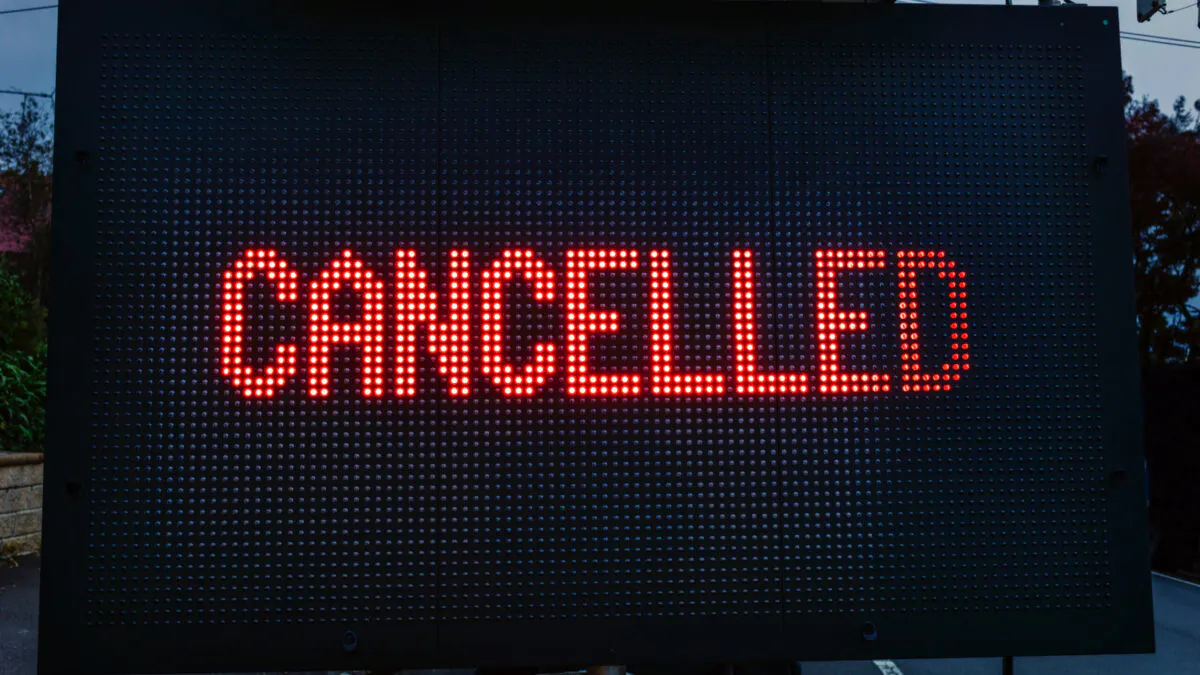From streaming services removing older episodes of “The Office” to scholars and teachers losing their jobs and suffering serious professional consequences, cancel culture is running rampant in America today. However, new data from the canonical American National Election Studies (ANES) reveals that significant numbers of Americans believe that cancel culture has gone too far. Self-censoring and easy offense are on the rise. And contrary to popular belief, younger Americans are just as likely as their older counterparts to view cancel culture as a net negative. Americans’ opinions of cancel culture and hypersensitivity fall along traditional ideological, educational, and racial lines, suggesting that this movement is anything but something exclusively spawned by younger Americans.
Specifically, the latest round of ANES data shows that non-trivially large numbers of Americans across all generational cohorts report censoring their speech at similar frequencies. Forty-five percent of Gen Zers (Americans ages 18 to 24) as well as 45 percent of Millennials (ages 25 to 40) say that they self-censor themselves at least occasionally. Forty-one percent of their Gen X parents (ages 41 to 57) report doing this, and 40 percent of their Boomer grandparents (ages 57 to 75) say the same. Ironically, those in the Silent Generation — Americans between ages 76 and 93 — are far less likely to report silencing themselves, with only 29 percent reporting doing so. Even if the eldest cohort is more open, the fact remains that almost 4 in 10 Americans readily concede that they limit and watch what they say on a fairly regular basis and think this is not healthy behavior in a democratic polity.
Moreover, the data shows there is generational parity in the belief that many people are too easily offended and that sensitivity in speech and discourse has gone too far. A majority of Gen Zers (53 percent), Millennials (51 percent), Gen Xers (56 percent), and Boomers (54 percent) all believe that people are too easily offended.
So, age is clearly not the issue here. Instead, ideology, education, and race — the same factors that cleave so much of society today — play real roles in shaping attitudes toward cancel culture.
Looking at ideology, for instance, nearly three-quarters of extreme liberals (73 percent) report that they rarely or never self-censor compared to about half of moderates (54 percent) and conservatives (51 percent). Similarly, when asked if Americans need to change the way we talk, the overwhelming majority of extreme liberals (83 percent) and liberals (77 percent) believe that change is necessary. In comparison, under half of moderates (46 percent), less than a fifth of conservatives (18 percent), and just 13 percent of very conservative individuals say the same.
While there is little variance in reported self-censoring across educational levels, attitudes toward sensitivity are varied. Fifty-seven percent of those with only a high school education believe people are too sensitive and too easily offended these days. In contrast, only 47 percent of those with college degrees and 41 percent of those with graduate degrees say the same.
Finally, race plays a significant role in cancel culture as well. In terms of occasionally self-censoring, differences between black and white Americans are not big (37 percent vs. 42 percent), while almost half of Asian Americans (49 percent) report silencing themselves occasionally or more often.
A far more pronounced difference emerges when the nature of discourse is examined. A majority of white respondents (59 percent) hold that Americans are too easily offended. Americans of other racial identities, however, respond quite differently. Only a third of black Americans (34 percent) think Americans need to be less sensitive, while nearly two-thirds (62 percent) maintain that people should change the way they talk. Hispanic and Asian Americans are slightly less worried about Americans needing to change their approach (46 percent vs. 48 percent), but slight majorities of both groups believe that Americans should change the way they talk with others.
Americans who typically lean toward the political Left are more likely to believe people need to change the way they talk and engage with others. But shutting down discourse, limiting the ability of others to question and engage, and canceling those whose views are deemed offensive is dangerous to our nation’s progress and democratic health. The ANES data makes it clear that these impulses are not coming from younger Americans but instead from progressive forces.
Cancel culture and hate-filled attacks that often emanate from those on the Left are not only hypocritical given the language of love and tolerance liberals preach but are also counterproductive. Our civic vitality is threatened when people cannot find shared humanity and, as the data shows, censor their speech, keeping their questions, ideas, and values to themselves. We as a nation must do better than this. In order to reach our potential, we must welcome dialogue, embrace viewpoint diversity, and hear the other side.
The views expressed in this opinion piece are the author’s own and do not necessarily represent those of The Daily Wire.
Samuel J. Abrams is professor of politics at Sarah Lawrence College and a visiting scholar at the American Enterprise Institute.

.png)
.png)

